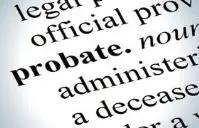While discussing an estate plan with a client, she stopped me and said “What is probate.” Sometimes we forget to explain the simplest concepts. Probate is the process by which a Last Will and Testament is given effect. Under New York State Law, a Will is admitted to probate after the Executor files a Petition for Probate with the decedent’s Will attached and gives proper notice to the individual’s that would have inherited from the decedent had the decedent died without a Will. The proceeding for the probate of a Will takes place in the Surrogate’s Court in the County where the decedent resided at the time of his or her death. The probate proceeding gives the interested parties (distributees) the right and opportunity to object to the probate of the Will.
Typically, we advise that a client that creates a Will consider if there are any circumstances that will make the probate proceeding an expensive one. For instance, is any distributee being disinherited? If so, that disgruntled distribute may come to Surrogates Court and object to the Will. The litigation objecting to a Will can be long and drawn out- and expensive as well. Are there missing heirs that must be found before the Will can be probated? If so, it could be very expensive and time-consuming to find all the individuals that are required to be given notice and an opportunity to object. Is there real property owned by the decedent in different states? If so, then the Will would have to be probated in each state. If any of these circumstances exist, you may want to avoid probate altogether. We also suggest avoiding probate if you are the surviving spouse and your spouse is or has received Medicaid benefits. Medicaid has a lien against the spouse’s estate for any Medicaid benefits paid for the other spouse within ten years of the death of the surviving spouse. Another reason to avoid probate is if you have a disabled beneficiary as the Surrogate’s Court may appoint a Guardian ad litem to protect that person’s interest. That could be another delay and cost to the estate.
The next question to consider is how do you avoid probate? One way to avoid probate is to name beneficiaries on all your accounts. But I rarely, if ever, suggest that a client resort to this solution without first considering the consequences. First, it may not be possible to name beneficiaries on all your accounts. What if your beneficiaries are minor’s or disabled? If that is the case, the minor or disabled beneficiary would have to have a Guardian appointed to collect the bequest. This is also timely. For minor’s, the Guardian would have to put the money in a bank account, earn little or no interest and turn the money over to the beneficiary when he or she turned 18. If the account was a retirement account, the result is even harsher. The IRA or other retirement account would have to be liquidated, all income taxes paid and then put into a custodial account at a bank, earn little interest and then be paid to the beneficiary at age 18.
Most clients, when given the choice, would rather protect their heirs from divorcing spouses, Medicaid, liens, creditors and taxes than avoid probate. We can protect beneficiaries by having their assets paid to trusts. This can be done in a Will (and probate) or, by avoiding probate altogether by using a revocable trust. The important point here is that it is a mistake to make the avoidance of probate the overriding consideration when embarking upon an estate plan. Not everyone needs a revocable trust, but some people will be well served by using a trust, if the circumstances make probate impractical.
One size does not fit all. A successful estate plan takes all factors into consideration. In a world where people are computer savvy and everything is available on the internet, it is easy to believe that you can just do it yourself. The fact is attorneys are called counselors at law for a reason. The documents are only part of the problem and solution. The fact is, there is no substitute for competent legal advice.





